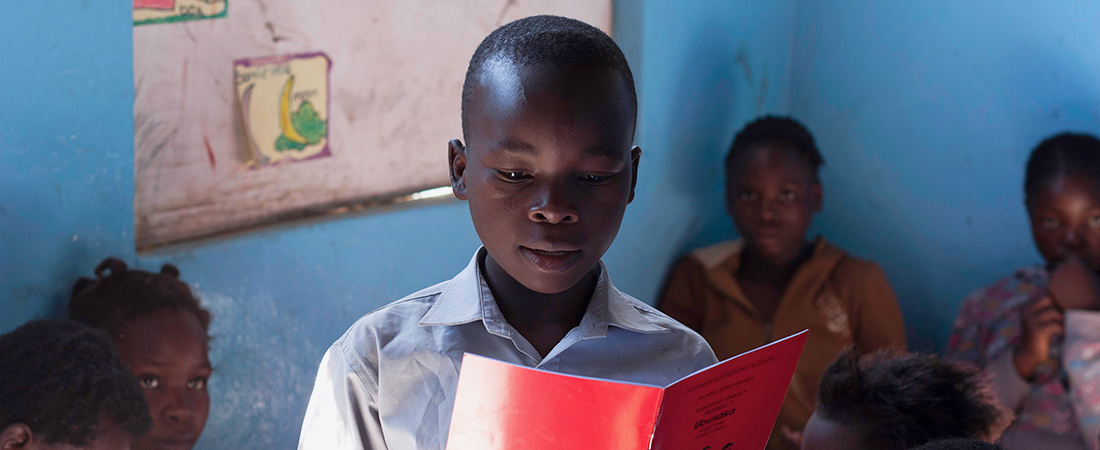
Literacy and mathematical programs deliver the promise of education to millions of children around the world.
We create and test learning experiences that lead to deep understanding and an ability to act thoughtfully upon the world. Whether in settings that are rich or poor in resources, we are committed to building sound foundations in literacy, science, and mathematics.
Through engaging classroom curricula, media instruction, digital tools, and teacher training, we equip children and young adults with the fundamentals they need to be successful—in school and in life.
Related Content
A Second Chance at School in Mali
In Mali, accelerated education is helping thousands of children get back to school.
Is Social Media Harmful to Students with Disabilities?
A new report on social media finds some benefits, but higher cyberbullying rates.
3 Ways to Stop the Summer Slide
Want to help kids keep learning this summer? Here are some tips for parents and caregivers.
How Schools Can Support Students Affected by Opioids
The trauma children experience as a result of opioid misuse at home can affect how they do in school—but schools can help.
3 Ways Schools Can Support Children Affected by the Opioid Crisis
Schools are uniquely positioned to address the needs of children exposed to trauma, says Shai Fuxman.
Accelerating Education in Liberia
An estimated 300,000 Liberian children do not attend school. What’s being done to provide more access to education?
Projects
Resources
Here are a few of our resources on behavioral, physical, and mental health. To see more, visit our Resources section.
The success of the Madagascar Ministry of Education’s educational reform package depends in large part on having parents become more involved in their children’s education and take ownership of the
The USAID-funded Literacy, Language and Learning Initiative (L3) Community Libraries (CLs) aims to put books in the hands of children, parents and community members.
This guide presents the Competency-Based Learning Survey for Students, a survey designed to help high schools collect data on students’ beliefs about, exposure to, and understanding of key elements
As Zambia’s out-of-school orphan population soared to 800,000 in 2000, the United States Agency for International Development (USAID) supported the creation of the Taonga Market Interactiv
This monograph examines educational technology initiatives in Lebanon, Jordan, the United Kingdom, and the United States over the past decade and draws lessons that can help nations moving forward with their own national educational technology initiatives.
This website offers free resources to help teachers provide effective instruction and support to students who are struggling with mathematics.
This resource focuses on how distance education technology benefits teachers and teaching.
Transition to Algebra is a full-year curriculum designed by EDC to run concurrently with first-year algebra to raise the competence and confidence of students who may benefit from supports
In this summary report, the authors share findings and recommendations from their review of existing research, exploration of teacher professional development programs, and interviews with teachers.
This study from USAID-funded Honduras Reading Activity (HRA) aimed to answer three key research questions.